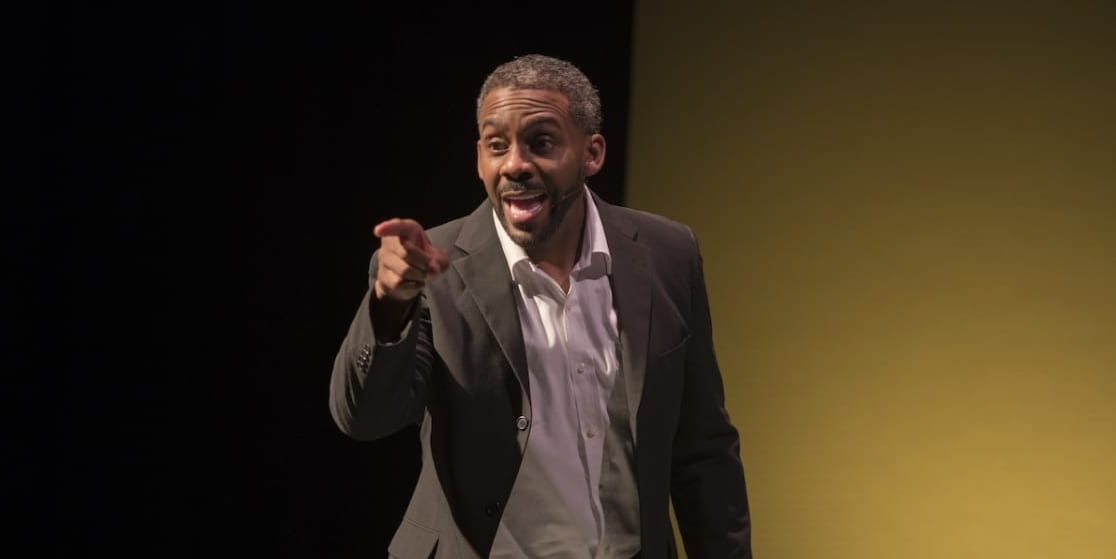This gripping 60-minute monologue deals with the death in custody of a young black man. It’s a strange mixture of comedy, tragedy, and righteous anger, held together by a bravura performance from Richard Blackwood. It is highly relevant in the aftermath of the death of George Floyd and the resurgence of Black Lives Matter. There is a problem though and it is all about the question of how a stage play can be transformed into a streamed ‘film’ production without losing its visceral power. Much of this play is in the form of a direct address to the audience and with the audience sitting not in the theatre but in front of screens in our own homes, that power is diluted. This production is just so different in style and impact from TV dramas designed from the outset with the armchair viewers in mind that the reviewer needs a whole different set of standards to judge it by.
The drama begins with a black man in his underwear lying on a ‘bed’ made of three large black boxes. His alarm goes off and we learn that it is late afternoon and he is about to get ready for a night out on the town. The tone in this section is comic and the language is an original and engaging mix of the mundane and the poetic. Richard Blackwood gets the tone just right in capturing the everyday concerns of a young man trying to balance a job, the care of his children from whom he is separated and his anticipation of an enjoyable night out on the town. The staging could not be simpler – the three back boxes, a surround of black curtains and an illuminated blue back-screen. The camera is pretty static, mostly taking the position of someone in the imaginary theatre’s front row; later in the drama, the camera begins to take a more inventive and mobile role in presenting the action.
Once the young man gets to the nightclub the tone begins to darken. He gets into an altercation with a bouncer and then into an argument with some young men who object to his chatting up a young white woman. The portrayal of this woman is one of the least successful elements of the play, both in Blackwood’s impersonation and in Cameron’s words. The racist gang from the club re-emerge and the drama begins its downward spiral to its tragic conclusion.
It is difficult to write about the last scenes of the play without risking undermining the impact of the message that the writer wants to convey to us. They are also about the black experience in contemporary life – the play is clearly titled Typical for a reason. As a white reviewer, I am in no position to challenge the righteous anger of the writer – the message is driven home as the closing scene concludes with a long list of the names of black people who have died while in contact with the police.
This is a powerful piece of political drama illuminated by a solo performance that more than holds our attention for almost an hour. But for me, it only served to make me feel even sadder that we cant go to live performances yet. We all want to ensure those stage performers have chances to practice their craft – and get paid – but this streamed version felt to me like a poor substitute for being in the Soho Theatre in the dark sitting alongside other audience members and being close up to actors performing with power and passion.

